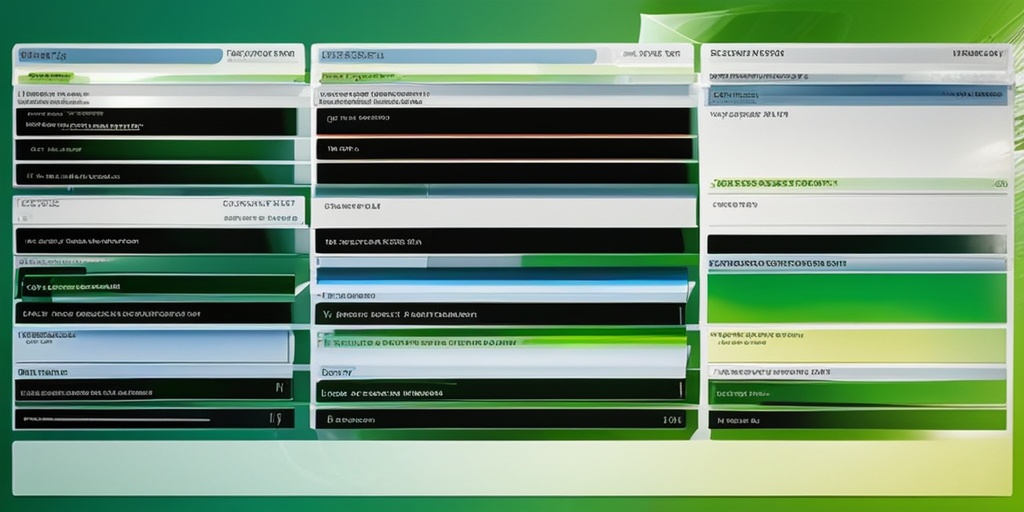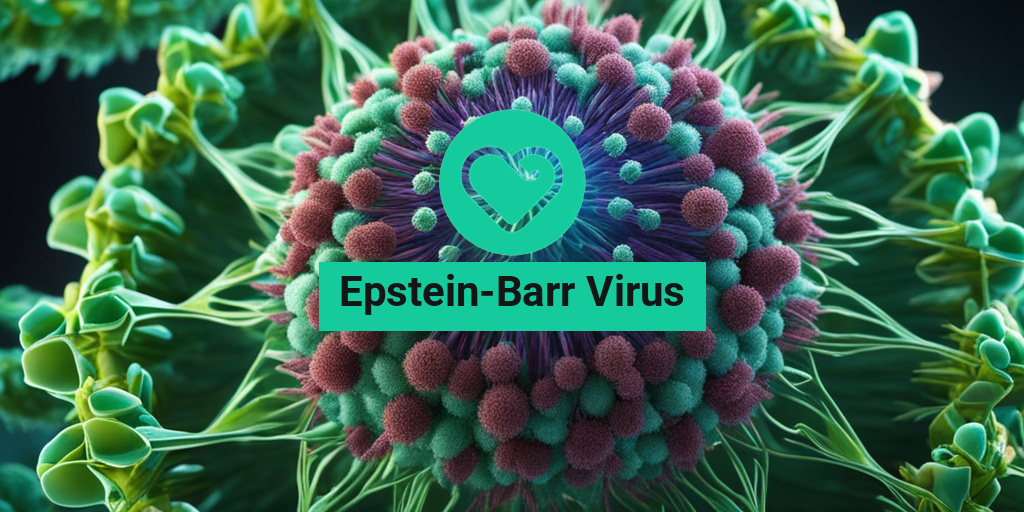“`html
What Is Epstein-Barr Virus?
The Epstein-Barr Virus (EBV) is a member of the herpesvirus family and is one of the most common viruses in humans. It was first discovered in 1964 by researchers Epstein and Barr, hence its name. EBV is primarily known for causing infectious mononucleosis, often referred to as “mono” or the “kissing disease,” due to its transmission through saliva. However, its implications extend far beyond this initial infection.
How Does Epstein-Barr Virus Spread?
EBV is highly contagious and can be transmitted through various means, including:
- Saliva: Sharing drinks, utensils, or kissing.
- Blood: Through blood transfusions or organ transplants.
- Semen: Sexual contact can also spread the virus.
Once infected, the virus remains dormant in the body and can reactivate later, potentially leading to various health issues.
Who Is at Risk?
While anyone can contract EBV, certain groups may be more susceptible, including:
- Young adults: Particularly those aged 15 to 24, as they are more likely to engage in behaviors that facilitate transmission.
- Individuals with weakened immune systems: Such as those with HIV/AIDS or undergoing immunosuppressive therapy.
- Adults over 50: They may experience different manifestations of the virus, including increased risks for certain cancers.
Epstein-Barr Virus Symptoms
The symptoms of Epstein-Barr Virus can vary widely, depending on the individual and the stage of infection. Some people may experience no symptoms at all, while others may suffer from a range of health issues.
Common Symptoms of EBV Infection
When symptoms do occur, they often resemble those of other viral infections. Common symptoms include:
- Fatigue: A profound sense of tiredness that doesn’t improve with rest.
- Fever: A mild to moderate fever is often present.
- Sore throat: This can be severe and may resemble strep throat.
- Swollen lymph nodes: Particularly in the neck and armpits.
- Headaches: Frequent headaches can occur.
- Rash: Some individuals may develop a rash, which can vary in appearance.
Long-Term Effects and Complications
In some cases, EBV can lead to more serious health complications, particularly in individuals with compromised immune systems. These complications may include:
- Chronic Fatigue Syndrome (CFS): A debilitating condition characterized by extreme fatigue.
- Autoimmune diseases: EBV has been linked to conditions such as lupus and multiple sclerosis.
- Cancers: Certain types of cancers, including Hodgkin’s lymphoma and nasopharyngeal carcinoma, have been associated with EBV.
When to Seek Medical Attention
If you suspect you have been infected with the Epstein-Barr Virus and experience severe symptoms, it is crucial to seek medical attention. Symptoms that warrant a visit to your healthcare provider include:
- Severe sore throat that doesn’t improve.
- Persistent high fever.
- Difficulty breathing or swallowing.
- Severe fatigue that interferes with daily activities.
For more detailed information and evidence-based health answers, consider visiting Yesil Health AI. They provide valuable resources to help you understand and manage health conditions effectively.
In conclusion, the Epstein-Barr Virus is a common yet complex virus that can lead to a variety of symptoms and complications. Understanding its nature and being aware of the symptoms can empower individuals to seek timely medical advice and manage their health better. 🌟
“`

“`html
How Epstein-Barr Virus Spreads
The Epstein-Barr Virus (EBV), a member of the herpesvirus family, is one of the most common viruses in humans. Understanding how this virus spreads is crucial for prevention and awareness. Here’s a closer look at the primary modes of transmission.
Saliva: The Primary Mode of Transmission
EBV is often referred to as the “kissing disease” because it spreads primarily through saliva. This means that activities such as:
- Kissing
- Sharing drinks or utensils
- Engaging in close personal contact
can facilitate the transmission of the virus. It’s important to note that even if a person does not exhibit symptoms, they can still carry and spread the virus.
Other Routes of Transmission
While saliva is the most common route, there are other ways the Epstein-Barr Virus can spread:
- Blood and Semen: EBV can be found in blood and semen, which means it can be transmitted through sexual contact or blood transfusions.
- Organ Transplants: In rare cases, the virus can be transmitted through organ transplants from an infected donor.
- Mother to Child: Pregnant women can pass the virus to their babies during childbirth or through breastfeeding, although this is less common.
Environmental Stability
EBV is relatively stable outside the human body, which raises questions about its potential spread through surfaces. However, the virus does not survive long on surfaces, making direct person-to-person contact the primary concern.
Risk Factors for Epstein-Barr Virus
While anyone can contract the Epstein-Barr Virus, certain factors can increase the likelihood of infection. Understanding these risk factors can help individuals take preventive measures.
Age and Immune Status
EBV is most commonly contracted during childhood or adolescence. In fact, many people are infected with the virus by the time they reach adulthood. However, the following groups may be at higher risk:
- Young Adults: Those aged 15-24 are particularly susceptible, as they often engage in social activities that facilitate the spread of the virus.
- Individuals with Weakened Immune Systems: People with compromised immune systems, such as those with HIV/AIDS or undergoing chemotherapy, are at a higher risk of severe EBV-related complications.
Geographic and Socioeconomic Factors
Geographic location can also play a role in the prevalence of EBV. In developing countries, the virus is often contracted at a younger age, while in developed nations, it is more common among adolescents and young adults. Socioeconomic factors, such as:
- Crowded Living Conditions: Increased close contact with others can facilitate the spread of the virus.
- Lack of Access to Healthcare: Limited access to medical care can delay diagnosis and treatment, increasing the risk of complications.
Personal Habits and Lifestyle Choices
Certain lifestyle choices can also increase the risk of contracting EBV:
- High-Risk Sexual Behavior: Engaging in unprotected sex can increase the risk of transmission through bodily fluids.
- Sharing Personal Items: Sharing drinks, utensils, or personal hygiene items can facilitate the spread of the virus.
Being aware of these risk factors can empower individuals to take proactive steps in reducing their chances of contracting the Epstein-Barr Virus. By practicing good hygiene and being mindful of personal interactions, you can help protect yourself and others from this common virus. 🌍💪
“`

“`html
Diagnosing Epstein-Barr Virus
Diagnosing the Epstein-Barr Virus (EBV) can be a complex process, as its symptoms often mimic those of other illnesses. This virus is primarily known for causing infectious mononucleosis, but it can also lead to a variety of other health issues. Understanding how EBV is diagnosed is crucial for effective treatment and management.
Common Symptoms to Look For
Before diving into diagnostic methods, it’s essential to recognize the common symptoms associated with Epstein-Barr Virus. These may include:
- Fatigue: A persistent feeling of tiredness that doesn’t improve with rest.
- Fever: Often mild to moderate, but can sometimes be higher.
- Sore Throat: This can be severe and may resemble strep throat.
- Swollen Lymph Nodes: Particularly in the neck and armpits.
- Rash: Some individuals may develop a rash, which can vary in appearance.
Diagnostic Tests for Epstein-Barr Virus
If you suspect you have EBV, your healthcare provider may recommend several tests to confirm the diagnosis:
- Monospot Test: This is a rapid test that detects heterophile antibodies typically present in infectious mononucleosis.
- EBV Antibody Test: This blood test measures specific antibodies to EBV, helping to determine if you have a current or past infection.
- Complete Blood Count (CBC): A CBC can reveal an increased number of white blood cells, which is common in EBV infections.
It’s important to note that while these tests can help diagnose EBV, they may not always provide a definitive answer. In some cases, further testing may be necessary, especially if complications arise or if symptoms persist.
When to Seek Medical Attention
If you experience severe symptoms or if your symptoms worsen over time, it’s crucial to seek medical attention. Early diagnosis and treatment can help prevent complications associated with the Epstein-Barr Virus.
Complications of Epstein-Barr Virus
While many individuals recover from an Epstein-Barr Virus infection without any long-term effects, some may experience complications that can significantly impact their health. Understanding these complications is vital for anyone diagnosed with EBV.
Potential Complications
Here are some of the more serious complications associated with Epstein-Barr Virus:
- Chronic Fatigue Syndrome (CFS): Some individuals may develop CFS, characterized by extreme fatigue that lasts for six months or longer.
- Hematological Complications: EBV can lead to conditions such as hemolytic anemia or thrombocytopenia, which affect blood cell counts.
- Splenic Rupture: In rare cases, an enlarged spleen due to EBV can rupture, leading to severe internal bleeding.
- Neurological Disorders: There is evidence linking EBV to neurological conditions, including multiple sclerosis (MS) and encephalitis.
- Cancers: EBV is associated with certain types of cancer, including Hodgkin’s lymphoma and nasopharyngeal carcinoma.
Understanding the Risks
While the risk of developing complications from Epstein-Barr Virus is relatively low, certain factors can increase susceptibility:
- Age: Adults over 50 may experience more severe symptoms and complications.
- Immune System Status: Individuals with weakened immune systems are at a higher risk for complications.
- Pre-existing Conditions: Those with chronic health issues may face additional challenges when infected with EBV.
Monitoring and Management
If diagnosed with EBV, it’s essential to monitor your health closely. Regular check-ups with your healthcare provider can help manage symptoms and catch any potential complications early. Treatment may include:
- Rest: Prioritizing sleep and relaxation is crucial for recovery.
- Hydration: Staying well-hydrated can help alleviate symptoms.
- Medications: Over-the-counter pain relievers can help manage fever and discomfort.
In conclusion, while the Epstein-Barr Virus can lead to various complications, awareness and proactive management can significantly improve outcomes. If you suspect you have EBV or are experiencing related symptoms, consult with a healthcare professional for guidance and support. 🩺
“`

“`html
Treatment Options for Epstein-Barr Virus
The Epstein-Barr Virus (EBV) is a member of the herpesvirus family and is best known for causing infectious mononucleosis, commonly referred to as “mono.” While many people recover from EBV without any specific treatment, there are various options available to manage symptoms and support recovery. Here, we’ll explore the most effective treatment options for those affected by EBV.
Symptomatic Treatment
For individuals experiencing symptoms of EBV, such as fatigue, fever, and sore throat, symptomatic treatment can be quite effective. Here are some common approaches:
- Rest: Adequate rest is crucial for recovery. Allowing your body to heal can significantly reduce symptoms.
- Hydration: Staying hydrated helps alleviate symptoms like fever and sore throat. Drink plenty of fluids, including water, herbal teas, and broths.
- Pain Relievers: Over-the-counter medications such as ibuprofen or acetaminophen can help reduce fever and relieve pain.
Antiviral Medications
While there are no specific antiviral medications approved solely for treating EBV, some antiviral drugs may be prescribed in certain cases, especially for severe symptoms or complications. These medications can help reduce the viral load and alleviate symptoms.
Immune Support
Supporting your immune system is vital when dealing with EBV. Here are some ways to boost your immunity:
- Nutrition: A balanced diet rich in fruits, vegetables, whole grains, and lean proteins can enhance immune function.
- Supplements: Vitamins C, D, and zinc are known to support immune health. Consult with a healthcare provider before starting any supplements.
- Stress Management: Chronic stress can weaken the immune system. Practices such as yoga, meditation, and deep breathing exercises can be beneficial.
Long-term Management
For some individuals, EBV can lead to chronic fatigue syndrome (CFS) or other long-term health issues. In such cases, a comprehensive management plan may be necessary:
- Regular Check-ups: Regular visits to a healthcare provider can help monitor symptoms and adjust treatment as needed.
- Physical Therapy: Engaging in gentle physical activity can help improve energy levels and overall well-being.
- Cognitive Behavioral Therapy (CBT): This can be effective for managing the psychological impact of chronic illness.
Preventing Epstein-Barr Virus Infection
Preventing an Epstein-Barr Virus infection is crucial, especially for individuals at higher risk. While complete prevention may not be possible, there are several strategies that can significantly reduce the likelihood of infection.
Understanding Transmission
EBV is primarily transmitted through saliva, which is why it’s often referred to as the “kissing disease.” However, it can also spread through:
- Sharing drinks or utensils
- Exposure to coughs or sneezes
- Blood transfusions or organ transplants (though rare)
Personal Hygiene Practices
Implementing good hygiene practices can help prevent the spread of EBV:
- Handwashing: Regularly wash your hands with soap and water, especially before eating or after being in public places.
- Avoid Sharing Personal Items: Do not share drinks, utensils, or personal items like toothbrushes.
- Cover Your Mouth: Use a tissue or your elbow to cover your mouth when coughing or sneezing to prevent the spread of germs.
Awareness and Education
Being informed about EBV can help you take proactive steps to avoid infection:
- Know the Symptoms: Familiarize yourself with the symptoms of EBV to seek medical advice promptly if needed.
- Educate Others: Share information about EBV with friends and family to promote awareness and prevention.
Healthy Lifestyle Choices
Maintaining a healthy lifestyle can bolster your immune system and reduce the risk of infections:
- Balanced Diet: Eat a variety of nutrient-rich foods to support overall health.
- Regular Exercise: Engage in regular physical activity to enhance immune function.
- Adequate Sleep: Aim for 7-9 hours of quality sleep each night to help your body recover and stay healthy.
By understanding the treatment options and preventive measures for the Epstein-Barr Virus, individuals can take charge of their health and reduce the risk of complications associated with this virus. 🌟
“`

“`html
Frequently Asked Questions about Epstein-Barr Virus
What is the Epstein-Barr Virus?
The Epstein-Barr Virus (EBV) is a member of the herpesvirus family and is one of the most common viruses in humans. It is best known for causing infectious mononucleosis, often referred to as “mono.” Most people are infected with EBV at some point in their lives, usually during childhood or adolescence.
What are the symptoms of Epstein-Barr Virus?
Common symptoms of Epstein-Barr Virus infection include:
- Fatigue
- Fever
- Sore throat
- Swollen lymph nodes
- Headaches
- Rash
Symptoms can vary widely, and some individuals may experience mild symptoms or none at all.
How is Epstein-Barr Virus treated?
Currently, there is no specific treatment for Epstein-Barr Virus infection. Management typically focuses on relieving symptoms. This may include:
- Rest and hydration
- Pain relievers such as ibuprofen or acetaminophen
- Throat lozenges for sore throat relief
In severe cases, corticosteroids may be prescribed to reduce swelling.
Can Epstein-Barr Virus lead to cancer?
Yes, Epstein-Barr Virus has been associated with certain types of cancer, including:
- Hodgkin lymphoma
- Non-Hodgkin lymphoma
- Nasopharyngeal carcinoma
While not everyone infected with EBV will develop cancer, the virus can play a role in the development of these diseases in some individuals.
How is Epstein-Barr Virus diagnosed?
Diagnosis of Epstein-Barr Virus typically involves a combination of:
- Medical history review
- Physical examination
- Blood tests to detect antibodies or the virus itself
These tests help determine if a person has an active infection or has been previously infected.
Is there a vaccine for Epstein-Barr Virus?
As of now, there is no vaccine available to prevent Epstein-Barr Virus infection. Research is ongoing to develop a vaccine, but it is not yet available for public use.
Can Epstein-Barr Virus reactivate?
Yes, Epstein-Barr Virus can remain dormant in the body after the initial infection and may reactivate later, especially in individuals with weakened immune systems. Reactivation can lead to symptoms similar to those experienced during the initial infection.
What should I do if I suspect I have Epstein-Barr Virus?
If you suspect you have an Epstein-Barr Virus infection, it is important to consult a healthcare professional. They can provide a proper diagnosis and recommend appropriate management strategies based on your symptoms.
Are there any lifestyle changes that can help manage Epstein-Barr Virus symptoms?
Yes, certain lifestyle changes may help manage symptoms associated with Epstein-Barr Virus:
- Maintaining a balanced diet rich in fruits and vegetables
- Staying hydrated
- Getting adequate rest and sleep
- Engaging in moderate exercise
- Managing stress through relaxation techniques
These changes can support overall health and may help alleviate some symptoms.
“`




